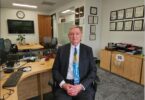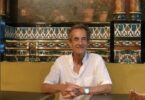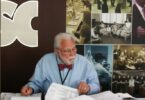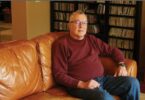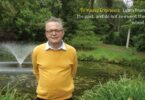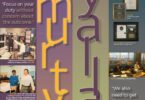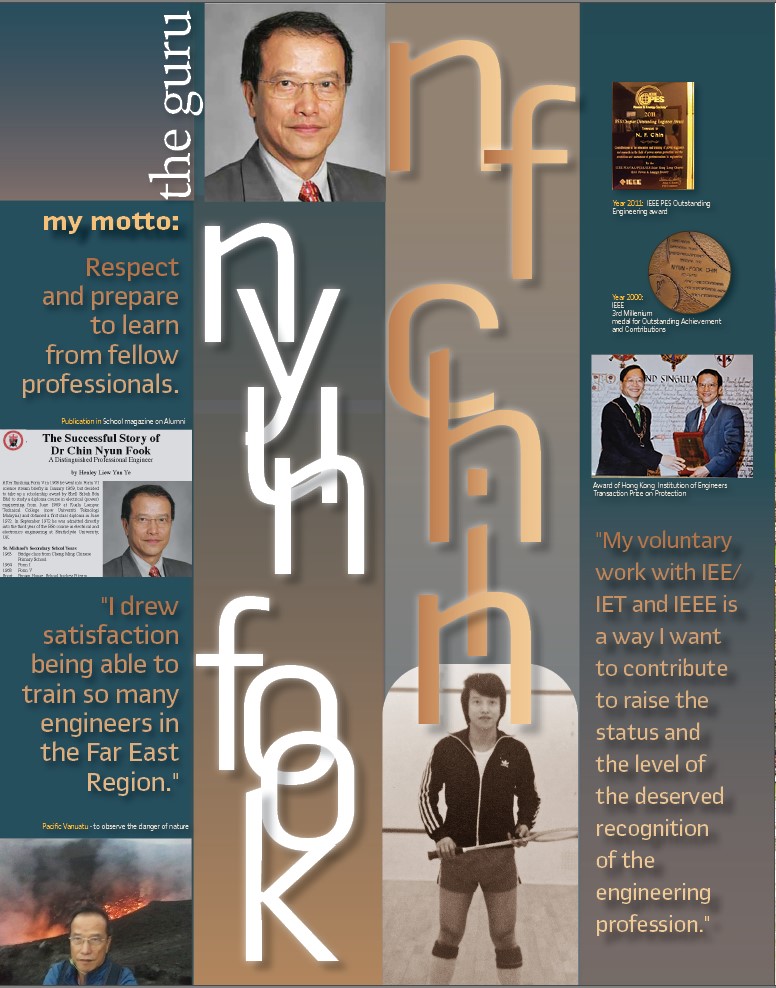
PAC World: When and where were you born?
NF C.: September 6th, 1949. Sandakan town, State of Sabah, East Malaysia.
PAC World: Where did you go to school?
NF C.: Hometown Sandakan.
PAC World: What were your interests while in school?
NF.C.: Sports – badminton, table tennis and hockey.
PAC World: Do you remember anything from your childhood that you think contributed to you becoming an engineer?
NF C.: In those days, knowledge was limited in scope of availability of different careers. Engineering was known. However, my family financial situation did not provide me with the luxury to be able to choose. It was the availability of a scholarship for me to apply and was only for engineering studies which led me into the engineering profession.
PAC World: Was there a person that had the most influence on you when you were growing up?
NF C.: No. With both parents being illiterate and needing to work full time, I grew up naturally without the regular parental care together with two brothers and four sisters and at the mercy of the Almighty to make it to adulthood.
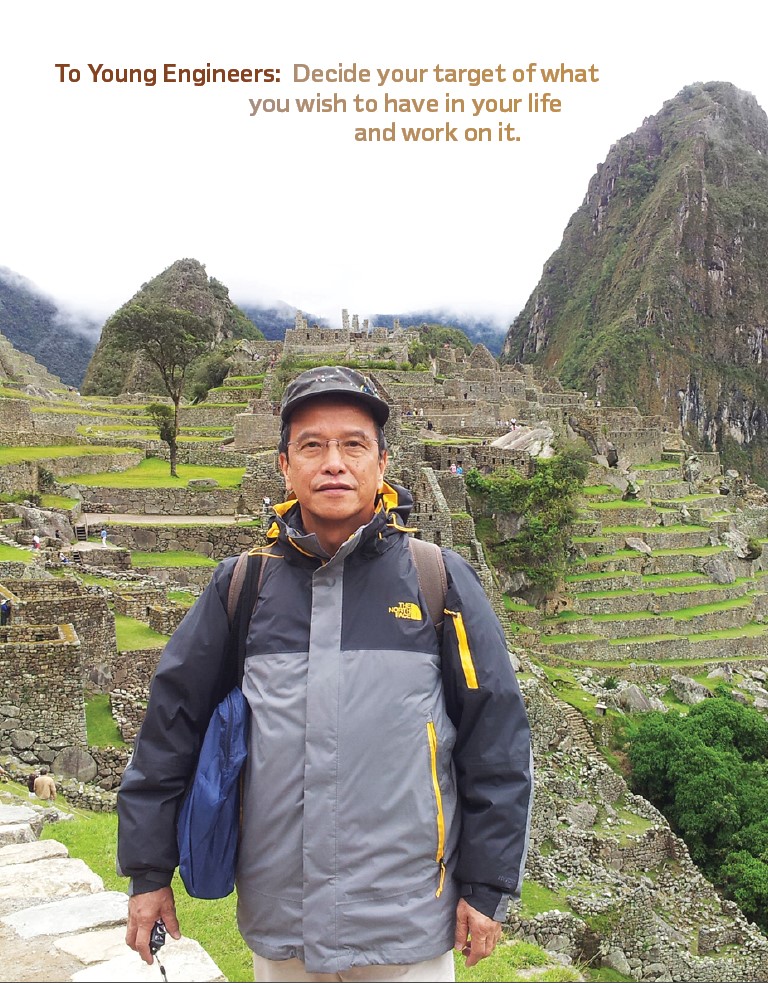
PAC World: When and why did you decide to continue your education?
NF C.: It was always in my mind to receive an education till the end of the educational path for growing up youngsters, but accepted that financial situation may determine the endgame.
PAC World: Why did you decide to do it in the UK?
NF C.: After secondary education I decided to take up a scholarship offer to pursue post-school vocational education instead of finishing secondary education at the Advanced level Form 6. The vocational qualification at the Technical College, Kuala Lumpur (present University Technology Malaysia) was recognized and accepted for a direct entry into the 3rd year of the 4-year BSc course in electrical and electronic engineering at Strathclyde University Glasgow, Scotland UK.
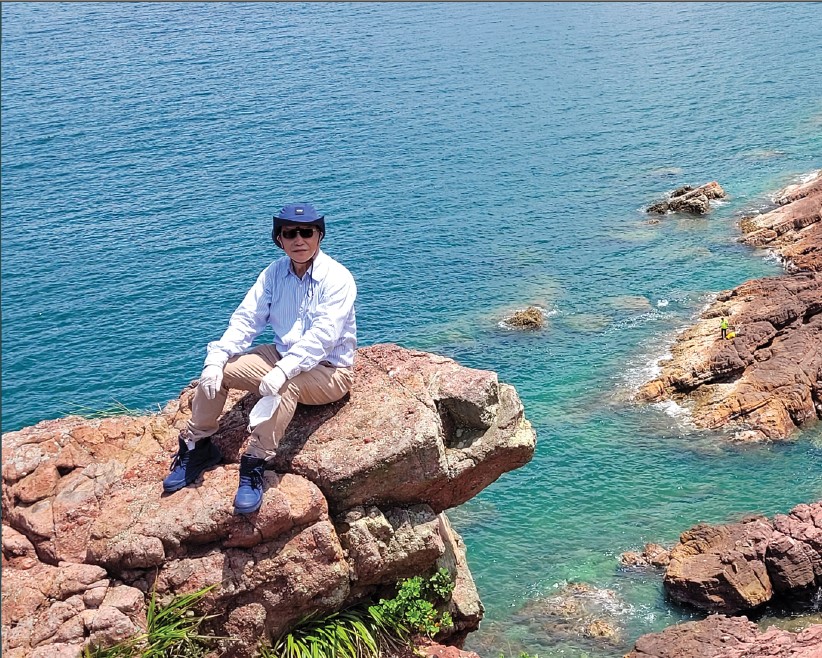
PAC World: How did you choose the university to go to?
NF C.: Strathclyde University at Glasgow, Scotland UK is a well-recognized technical institution, and it accepted my vocational qualification for a direct entry into the 3rd year of its 4-year course, enabled smooth progress into university education.
PAC World: Did you study electric power systems or protection while in college?
NF C.: Power engineering with power systems as a module was my major for both my vocational and university courses. However, the part on power system protection in my bachelor course could not be covered because of lecture time limit.
PAC World: Was there any professor that helped you select your future career path?
NF C.: No. My education path received no advice or I was not aware of any such facilities offered by college/university. It was a natural development.
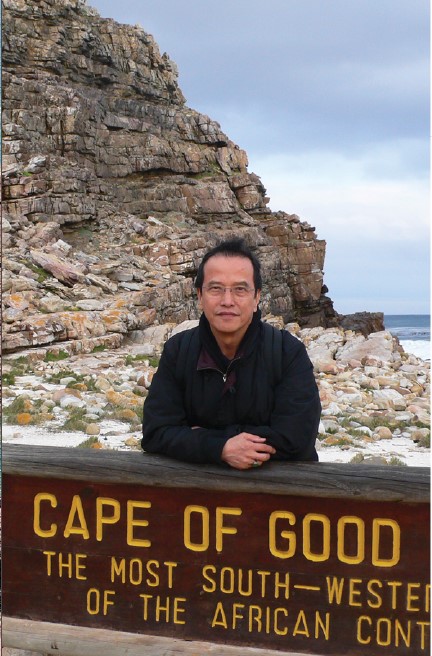
PAC World: Did you have any other interests while in university?
NF C.: My priority at the time was to complete my course and successfully obtain the pursued qualifications in order not to waste the heavy financial burden provided by all the family members to enable me to continue my studies. I must say that I had not made full use of my university life in all aspects except studies.
PAC World: What made you interested in system protection and control?
NF C.: It was the colorful brochure of the company, GEC Measurements, Stafford, UK, that attracted my attention to consider application for a job. I was not aware of or had any particular preference on what was the nature of jobs on offer. My mind was set to obtain a job to receive training and experience in UK before returning to Malaysia.
PAC World: What was your first job and how did you get it?
NF C.: My first job was from GEC Measurements, Stafford, UK. I submitted the completed company application form, received an invite for a face-to-face interview at the company factory. A successful interview with a first-class bachelor degree in possession I was offered a job at the company’s protection application section of the Protection, Control and Communications Department.
PAC World: Why did you choose to work for industry instead of academia?
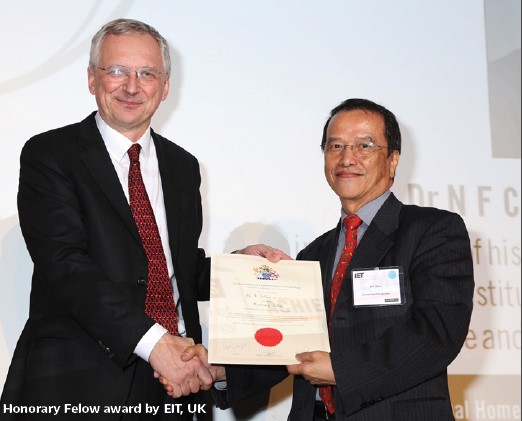
NF C.: I was given a PhD scholarship by Strathclyde University after obtaining first class bachelor degree. It was during my first year PhD research that I successfully applied for a job at GEC Measurements. At the time I realized that PhD degree would lead me to become an academic when I return to Malaysia.
I was not particularly interested in this area. I therefore, decided to terminate my PhD research work and submitted a thesis for a master MSc research degree and joined the industry.
PAC World: What was the most exciting project that you worked on at your early years at GEC?
NF C.: GEC Measurements in those days was heavily involved in the export market with over 80% of its products and systems supplied to different parts of the world. Therefore, I was involved in looking at the protection requirements of a lot of power utilities worldwide via various projects. This work provided exposure and understanding of different philosophies and practices of different power companies for their systems with voltages from distribution to ultra-high voltage levels 750kV. During the early years of my professional development, I learned and enjoyed working on all those projects involved gaining valuable experiences with no particular one to be highlighted as special.
PAC World: What was the most satisfying project you worked on?
NF C .: For all the projects that I worked on I drew satisfaction from any project that required my new designs to meet the requirements of the projects together with prototyping and verifications.

PAC World: You have worked for more than 25 years for the same company. Why did you leave and start your own company?
NF C.: Having worked under the engineering department as technical personnel providing all necessary inputs to the application, specifications and design of new equipment/systems and technical supports to commercial team on sales and marketing matters, I was considering moving to management to broaden my exposure and climbing up the corporate ladder.
I took up the challenge of the company’s initiative to develop the business in the Far East Region with base established in Hong Kong on overseas tour of duty contract. The tour was very successful with the contract extended many times. GEC Measurements started as a wholly British company and became a multi-national organization via merges of parent companies. Politics began to play over business progress and priority. Politically based restructuring meant I needed to return to UK base. Instead of following the tour contract to return UK base, I decided to start my own company making full use of the vase networks of professionals I built up during my 25 years working for the company based in Hong Kong where opportunities were there for business development.
PAC World: How different it is to work for yourself instead of a large global company?
NF C.: The first thing was that there were no corporate policies needed to follow, no company budgets to follow. Most importantly there was no politics in the business. The pressure was there straightway to make a financially viable venture when I started my own company. With my professional networks built up and with my specialist application knowledge I was able to quickly establish a successful operation. I started to enjoy an independent entrepreneurial lifestyle.
PAC World: What is the most challenging project that you worked on as a consultant?
NF C.: Fortunately, there was no such project that challenged my technical expertise limits. The business flows were very much routine though I need to constantly update my technical know-how to face the rapid development in the areas of power system operations and all the related technologies.
PAC World: What was the most satisfying project you worked on?
NF C.: Part of the scope of activities with my own company was and still is the running of courses on power system protection. I drew much satisfaction from being able to train so many engineers in the Far East Region in power system protection by successfully running such courses with constant need for updates of new developments.
PAC World: You have been part of the transition to microprocessor-based protection IEDs and now to digital substations. Do you see a difference between these two transitions?
NF C.: I have seen the negative reactions of users when microprocessor-based protection IED’s were initially introduced onto the markets. It was mostly based on the protection solutions being offered by the new IED’s that users were able to accept, less so for the associated non-protection related facilities.
The successful application of microprocessor-based IED’s and the rapid development of new generation of standard hardware, all based on by then well-established digital technologies , by manufacturers led to well acceptance of so called numerical IED’s.
The advances in communication technology and the standardized IEC 61850 protocol led to rapid adaptation of digital substations. However, there is a major gap in this process in the reliable applications of non-conventional instrument transformers.
PAC World: For many years you have been involved with IEE/IET and IEEE. When and why did you join each one of them?
NF C.: Having been wholly technical personnel then moving to management with commercial operations handling mostly technical matters I found interests in the academia areas thinking of becoming an all-around engineer with exposure in all engineering related areas.
As I was also involved in the company’s joint research with different institutions, I wanted to be part of learned society activities and these institutions provide the most suitable platforms. I also wanted to contribute to the work of recognition of professional engineering qualifications via different registration processes.
For the above goals I started active participation in the activities of IEE, having been its student member during university days. I was a founding member of its branch in Hong Kong in 1988. In 1996 I became an assessor of the IEE qualifications requirements to gain engineering registration.
I also joined the local IEEE activities as a stepping stone to the academic becoming its chairman in 1997 for 2 years.
At the same time, I also secured the company’s sponsorship to take on part-time PhD research in power system protection winning the award in 1995. Professional institutions like IEEE providing learned society activities became a natural choice.
PAC World: How important do you think is their role for your development as a professional?
NF C.: They are the most appropriate platforms to enable success in my planned professional career development providing internationally recognized registration and platform for life-long learning to be up-to-date for engineers.
PAC World: You have been in leadership positions in IEE/IET and IEEE. Why did you do that?
NF C.: My voluntary work with these institutions is a way I want to contribute to raise the status and the level of the deserved recognition of the engineering profession. Personally, they also provide the platforms to network with fellow professionals worldwide exchanging experiences and helping my own business development as well..
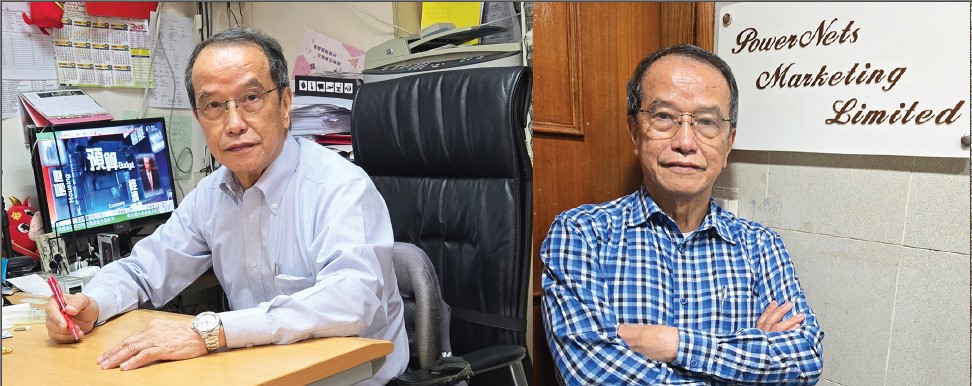
PAC World: Today we are part of the transition from hard wired protection and control systems to IEC 61850 communications based fully digital substations. What is your opinion about it, the benefits and challenges?
NF C.: This unified approach is definitely in the correct direction after years of individual proprietary development by manufacturers and users. This is meeting the so much desired requirement of interoperability. The main challenge is the human skills required to ensure the secondary system design reliability is meeting the level associated with power system protection reliability.
PAC World: The electric power grid today is very different from the power grid of the twentieth century. What do you think about the impact of inverter based distributed energy resources on protection and control systems?
NF C.: Power electronics is slowly encroaching onto the power system protection and control areas providing intrinsic facilities to protect and control the relevant parts of the power supply networks. Variability of power system operations in generations and configuration create challenges to the traditional worst-case considerations of protection and control system designs.
Renewal energy sources development led to distributed generations penetrating into the power supply distribution networks. Planning and operation of these newly created active distribution networks require new tools and approaches to be added to traditional distribution networks operations.
PAC World: What do you believe is the best way to share your knowledge and experience with the new generation of protection engineers?
NF C.: Via training courses and suitable networking platforms organized by professional institutions.

PAC World: What do you think is most important for a protection engineer’s development
NF C.: To be able to be exposed to different practices of various utilities and manufacturers worldwide learning the bases of the differences via different means and platforms.
PAC World: What do you consider the biggest challenge in your professional career?
NF C.: As a professional practicing protection engineer, there are always challenges to occasionally trying to explore fully the fundamentals of traditional protection techniques, some classical problems and to be kept up to date with latest development in both hardware and software.
PAC World: What do you consider your biggest professional accomplishment?
NF C.: To be recognized and respected as a power system protection engineer in the Far East region by my generation of professional engineers in the power engineering industries.
PAC World: You have received many awards and recognitions. Is there one that is the most important to you?
NF C.: I express my gratitude to all those organizations and treasure each and all forms of recognitions. If it were to be considered my amount of voluntary efforts the award of Honorary Fellowship, HonFIET, by the Institution of Engineering and Technology (The IET) to be a member of near 400 awardees in over 150 years, this would be most important.
PAC World: What do you think we need to do to attract more young people to our industry?
NF C.: We need to do the appropriate marketing exercises customized to deal with different engineering disciplines to advertise our profession not just based on achievement of technical excellence being recognized, but also on the financial return and the potential climb up in corporate and social ladder.
PAC World: What is the advice that you would give when you are in front of an audience of young people?
NF C.: Decide your target of what you wish to have in your life and work on it.
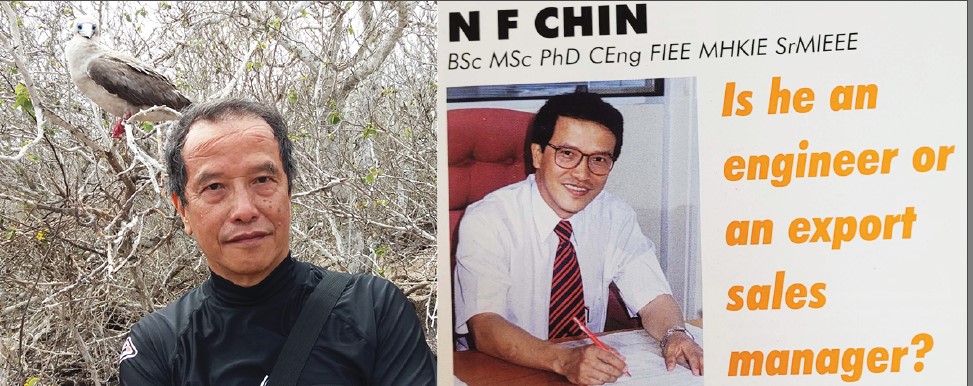
PAC World: What do you think is your most important personal achievement?
NF C.: When I submitted my thesis for my MSc research degree terminating my PhD research, it has been in my mind ever since wondering whether I had made the correct decision. When I was awarded the PhD degree in 1995 after a long period of part-time studies whilst working as a full-time professional engineer I considered, until today, it is my most important personal achievement.
PAC World: You have traveled to many countries. Do you have a favorite place to visit?
NF C.: I have travelled extensively over all the continents from Arctic to the Antarctic, Africa, the entire East, Central and West Asia, Australasia, Europe, North, Central & South Americas. I enjoyed most the fantastic natural wonders of the world and also the eye-opener of closed society of North Korea. While each visited place has its specific characteristics I can only say that I very much prefer not to visit big well developed cities and focus on natures and modern-development-neglected territories to see how the world is divided by uneven sharing of resources.
PAC World: Do you have a hobby or something that you like to do when you are not working?
NF C.: Keep practicing my yoga-like exercises and the Chinese Tai Chi to maintain my mobility and to keep away from major health issues.
PAC World: How do you mix your professional and your personal life?
NF C.: To keep a good time management and to maintain interests in the professional part of life with the most important understanding and support of my partner.
PAC World: You are still working in different roles. Do you ever consider retiring?
NF C.: Because I am running my own company, I have the privilege to decide when I want to retire. Since my health conditions are not an issue, I just want to have something to keep my mind active and to maintain physical mobility by keeping the operation. However, I already started running down the business.
PAC World: What is your favorite music?
NF C.: I very much prefer the oriental music especially those from the minority groups from China..
PAC World: What is your favorite form of entertainment?
NF C.: I am not a person focusing on a particular form of entertainment, but rather enjoy various forms depending on availability and accessibility of such facilities.
PAC World: Do you have any favorite food?
NF C.: Being an international traveler visiting places over all the continents I have enjoyed the food, being weird or traditional, from all these places I have visited. Perhaps the underlining preference is still the colorful food from Asia.
PAC World: Do you have a motto?
NF C.: As part of life learning requirements for professional engineers I always remember to respect and prepare to learn from fellow professionals in every encounter and occasion.
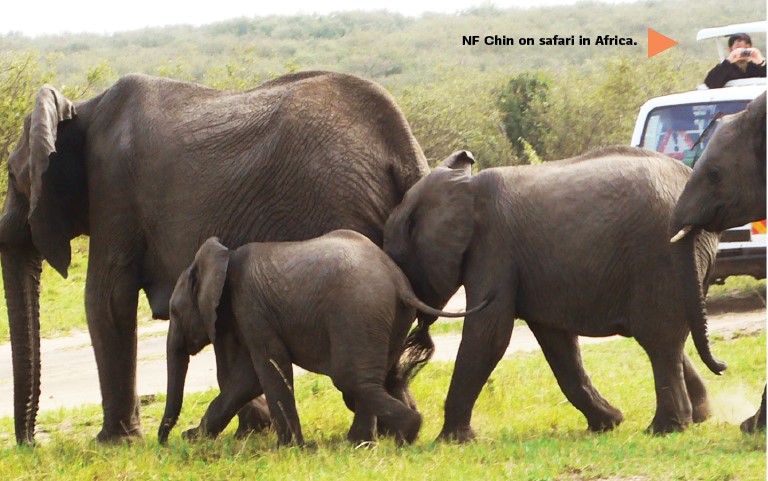
PAC World: Is there a question that we forgot to ask you?
NF C.: I don’t think I am able to provide any more. I hope I have been able to respond to the questions from my real-life experiences. I must express my gratitude for selecting me in this exercise.
Biography:
Dr NF Chin Director of Hong Kong PowerNets Marketing Limited, has been an active power system Protection Engineer for the past 50 years. He received BSc in Electrical & Electronic Engineering (1974) and MSc in Electrical Engineering (1976) from Strathclyde University UK, and also PhD in Electrical Engineering (1995) from Bath University UK. He started his professional career with British GEC Measurements at Stafford, UK. Later he took up overseas duty based in Hong Kong managing the company business for the Far East Region. One of his key roles has been the training of practicing engineers in power system protection applications with hundreds of engineers in Far East and Australasia being trained by him. He lectured this specialist subject to both undergraduate and postgraduate students at Hong Kong Polytechnic University serving as its Adjunct Professor. Dr Chin has also been elected Vice President by the worldwide membership of UK Institution of Engineering and Technology (IET) contributing to the work on professional engineering registration and learned society activities.


